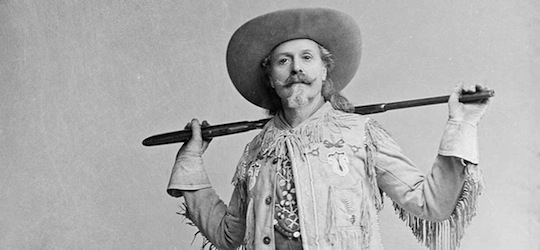Buffalo Bill’s Wild West’s show could be envisaged as a pioneering attempt of exporting the newborn American Culture into the Old World, like a sort of backlash colonization. It can be therefore interpreted as an embryonic example of American transnationalism. The Italian stopovers of the Wild West’s tour, although sporadically tackled by previous scholarship, proved to be focal in the construction of a transnational awareness, especially considering the history of mass-migrations of the time. In particular this paper looks at one specific aspect of such perception, which is the two-sided understanding of ‘otherness’, showing the double point of view in which both the Italians and Western (and Native) Americans kept relationships with one another and defined their identities.
Tag Archives: 8th Biennial Symbiosis Conference
“American Exceptionalism Meets Indian Enthusiasm: Germany Welcomes the Wild West,” Julia Stetler, University of Nevada, Las Vegas
Buffalo Bill’s Wild West show spent almost a third of its life in Europe, traveling extensively through Great Britain, Spain, France, Italy, Germany, and Austria between 1887 and 1906. It left behind a lasting impression of America in European minds and inspired countless Western-themed novels, plays, and even fashion. However, it also intersected with ideas about the American West that had already been formed by novels, through journalism, travelogues, immigrant letters, and visual materials such as paintings, prints, and photographs.
“Exceptionalists Abroad: Mark Twain, Buffalo Bill and Venture Cosmopolitanism,” Frank Christianson, Brigham Young University
After watching a Buffalo Bill’s Wild West performance in 1883 Mark Twain wrote to William Cody encouraging him to export the show: “It is often said on the other side of the water that none of the exhibitions which we send to England are purely and distinctively American. If you will take the Wild West show over there, you can remove that reproach.” Four years later Cody would take the show to London and begin one of the most successful and celebrated runs of his career. Twain’s words reflect a century-long American quest to earn cultural legitimacy in the eyes the British. Nineteenth century American cultural history is defined in large part by the exceptionalist enterprise as American writers including Emerson, Whitman, and Melville defined their work in relation to British influence and sought an original American voice in their writing. Many people viewed Twain’s regionalism as one such original moment. And Twain clearly viewed Buffalo Bill’s Wild West as another.
